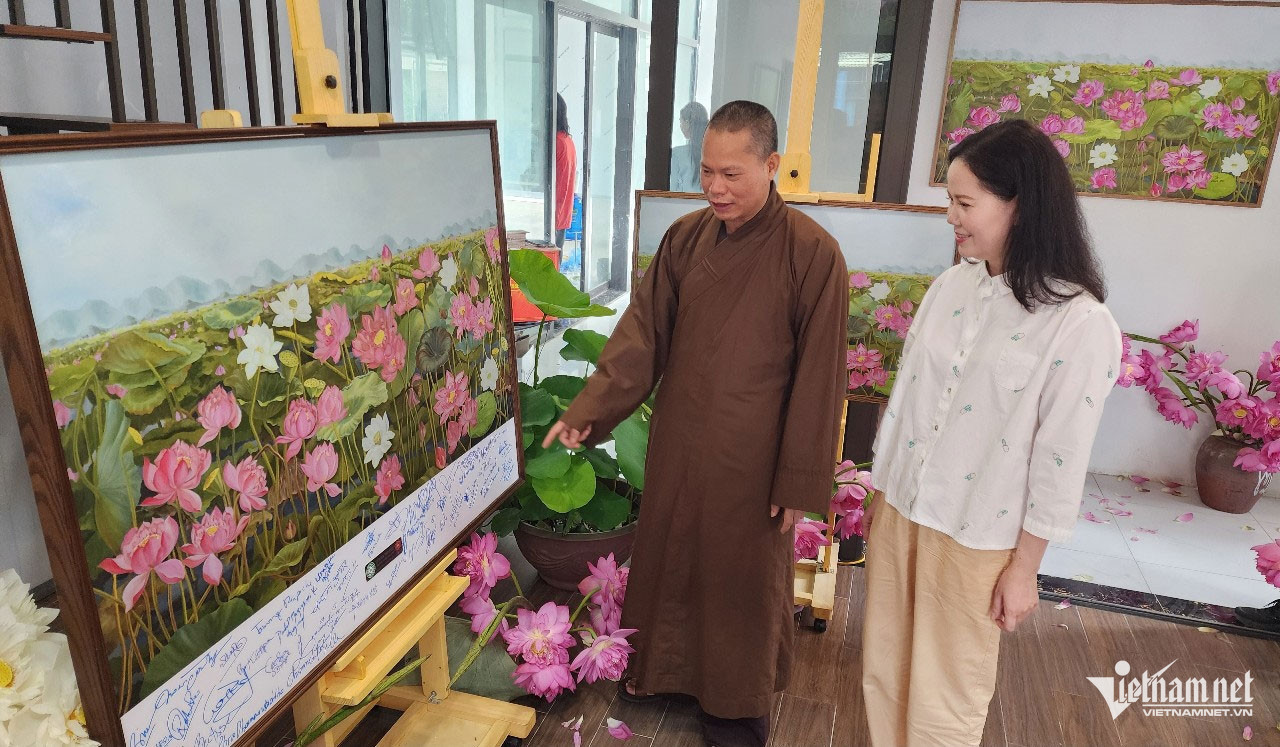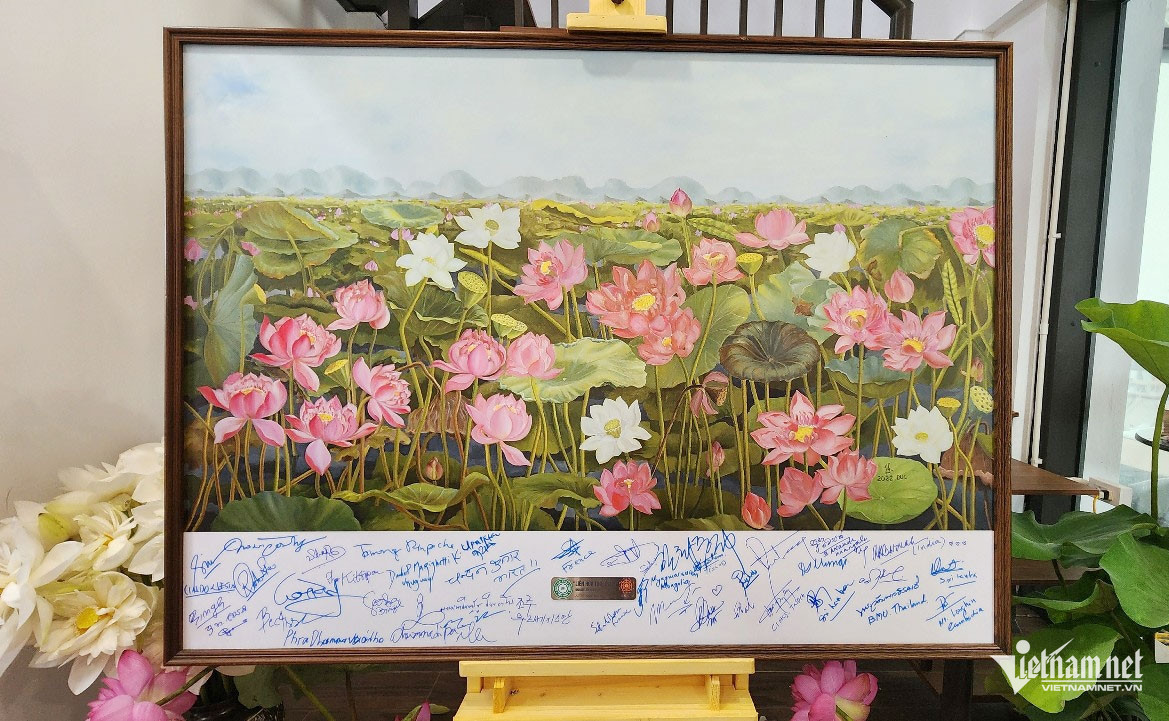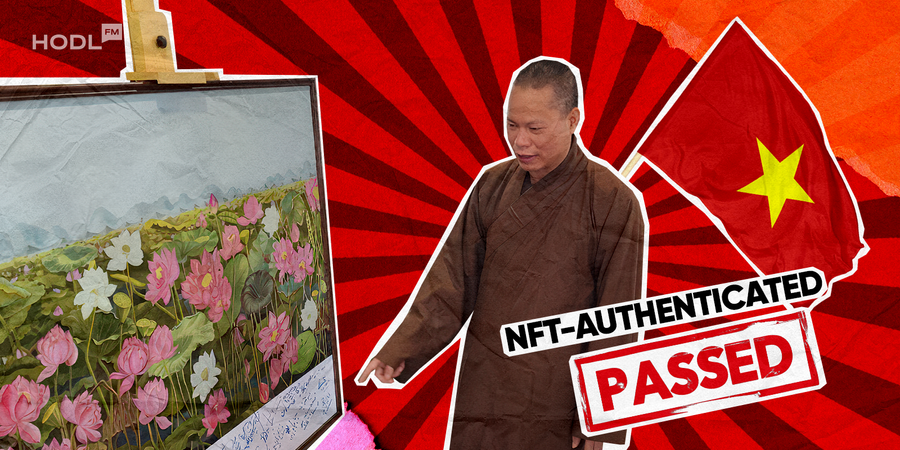Kim Duc just opened the Lotus Art Gallery in Van Phuc, Ha Dong, and guess what? She’s showcasing one iconic piece. The painting “Lien Hoa Tinh Canh” (Pure Lotus Scene) takes center stage, and it’s not just a pretty picture; it’s a deeply personal creation, bursting with Buddhist symbolism. But here’s the kicker: It’s not just one painting. This artwork comes in various sizes because, well, why not let everyone have a slice of this spiritual goodness?

Now, this isn’t just any painting. It’s the very piece selected by the Vietnam Buddhist Sangha to gift international delegates at the 2025 United Nations Day of Vesak. Oh, and it was displayed beside Buddha relics, yes, India’s national treasure, when they were enshrined in religious sites across Vietnam. No big deal, right?
Kim Duc, self-taught and driven by passion, didn’t just stumble into art. She’s been painting lotus flowers since she was a kid.
Even though the original has caught the eye of many collectors, Kim Duc is having none of it. She’s not here to make a fortune; she’s here to spread peace.
“Selling art isn’t my main focus. After operational costs are deducted, all proceeds from the prints will be donated to Buddhist activities,” she said.
NFTs Meet Art Forgery
Here’s where things get a little more techy. Kim Duc is the first Vietnamese artist to use NFTs to protect the authenticity of her artwork.
“Buyers can rest assured that the painting they own is an official, copyrighted edition,” she said.

At the exhibition, Phung Kim Phong, a rep from Lotus Art Gallery, explained how this works:
“We use a unique authentication code for each piece. Buyers just need a smartphone to verify the artwork’s origin.”
It’s like a digital signature, but cooler, using NFTs to prevent anyone from copying the artwork and passing it off as the real deal.
According to Phong, consumers deserve genuine art when they fork out their hard-earned cash.
“If someone spends even a small amount for an original, they shouldn’t end up with a mass-produced copy. That undermines not only their trust but also the value of art.”
So, no more scams, this is the future of art verification.
As Phong put it, “Authentication reflects respect for customers and a commitment to quality. It’s not just a responsibility; it’s an ethical obligation.”
Art just got a lot more secure, and Kim Duc is leading the charge.

Disclaimer: All materials on this site are for informational purposes only. None of the material should be interpreted as investment advice. Please note that despite the nature of much of the material created and hosted on this website, HODL FM is not a financial reference resource, and the opinions of authors and other contributors are their own and should not be taken as financial advice. If you require advice. HODL FM strongly recommends contacting a qualified industry professional.





